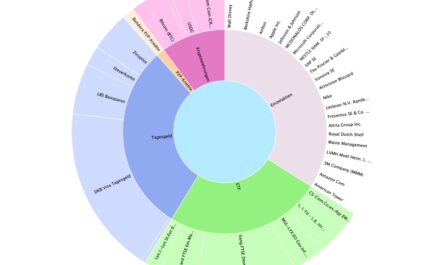Statistically speaking, since last Wednesday the average German employee has once again been working solely for his or her own pocket. Until July 12, 2023 at 05:12, the entire income earned by tax and contribution payers before that date went, in purely mathematical terms, to the public coffers in the form of taxes and contributions.
Of every euro earned, around 12 cents went to wage and income tax, 4.7 cents to sales tax as a result of own consumption, and 0.9 cents to energy taxes including the CO2 levy. German employees had to pay a further 3.0 cents for other taxes such as property tax, motor vehicle tax or coffee and insurance tax. A further 0.4 cents was statistically attributable to quasi-taxes such as the broadcasting contribution or the energy levy.
Not even half of earnings left over
This means that the income burden ratio for an average employee household is expected to be 52.7% this year. Compared to the previous year, the so-called Taxpayers’ Memorial Day thus even falls on a slightly earlier date, because last year the burden rate was still 53%, according to the German Taxpayers’ Institute (DSi). The highest rate in 2019 was 53.7%.
The slight decline is due to numerous smaller reliefs, for example, the reduction in sales tax on natural gas and district heating from 19% to 7%, but also the innovations in land transfer tax and the turnaround in interest rates on assets.
However, this is offset by higher consumer prices due to inflation and higher contribution rates for health and long-term care insurance, which have been in effect since July.
The figures are based on a representative survey by the German Federal Statistical Office of the income and expenditure of selected private households and are extrapolated for the current year as a whole. According to the survey, the average German employee household has 2.3 persons and a gross monthly salary of €5,755. However, other income from self-employment or assets, as well as employer contributions to social security, are added, bringing the total income to 7,113 euros per month.
Over the year as a whole, 855 euros in income tax, 637 euros in indirect taxes and 2,254 euros in social security contributions are paid to the state each month.
Criticism
However, this day should not be celebrated completely; after all, with every tax paid, a certain portion flows back to the contributors in the form of roads, educational facilities or hospitals and later pensions. With a view to fairness in performance, however, one should be allowed to question whether the tax burden should actually be more than half.
This is also the view of BdSt President Reiner Holznagel, who is therefore calling on the German government to completely dismantle the cold progression, which FDP Finance Minister Christian Lindner had already partially implemented. In addition, the reduced VAT rate should also apply to electricity in order to counteract the drastic development in energy prices.






